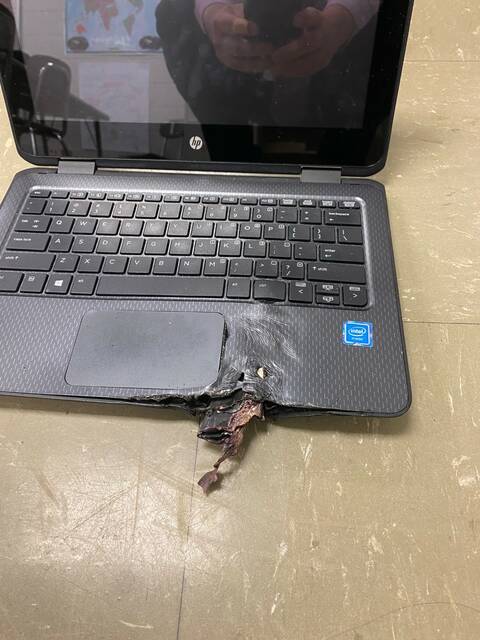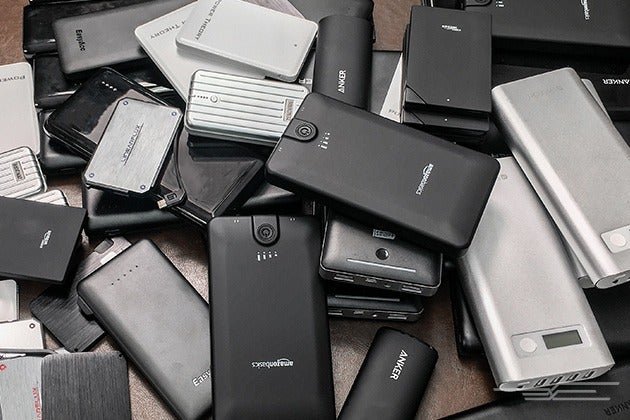Now Reading: What Happens to Unsold Laptops
-
01
What Happens to Unsold Laptops

What Happens to Unsold Laptops
Unsold laptops may be returned to the manufacturer or sold at discounted prices to clear inventory. Unsold laptops that remain in stock may have a few potential outcomes.
Manufacturers often accept returns from retailers, which may be refurbished and resold as open-box or clearance items. Alternatively, these laptops may be sold at discounted prices to clear inventory and make way for new models. In some cases, manufacturers may also repurpose or recycle unsold laptops to minimize waste.
Regardless of the outcome, the goal is to maximize value and minimize environmental impact. These practices also allow manufacturers to maintain healthy relationships with retailers and ensure customers can access the latest laptop models at competitive prices.

Credit: www.yourdailyjournal.com
Reasons For Laptop Unsold Inventory
Reasons for laptop unsold inventory include overproduction due to manufacturers’ lack of accurate demand prediction, seasonal fluctuations in demand, and rapid technological advancements that render older models obsolete. Overproduction occurs when manufacturers produce more laptops than demand, leading to excess inventory.
Seasonal demand fluctuations can also impact sales, with higher demand during back-to-school and holiday seasons and slower sales during other times. Moreover, the rapid pace of technological advancements means consumers often prefer to purchase the latest models, leaving older inventory unsold.
However, manufacturers can mitigate these risks by implementing effective demand forecasting strategies, optimizing production levels, and offering trade-in programs or discounts for older models. Manufacturers can minimize losses and ensure a more sustainable supply chain by understanding the reasons behind unsold laptop inventory.
Effective Management Of Unsold Laptop Stock
When laptops go unsold, effective management of the stock is crucial. One way is to reevaluate the inventory regularly. Collaboration with retailers can provide valuable insight into market trends and demand. Clearance sales and discounts are another option to move unsold laptops while attracting customers.
Remanufacturing and refurbishing can breathe new life into these devices, making them more appealing to potential buyers. By implementing these strategies, businesses can reduce their losses and optimize the use of their resources. Proper management of unsold laptop stock ensures that these devices don’t become completely obsolete or go to waste.
Ultimately, it’s essential to adapt and find innovative solutions to address the challenges that arise from inventory stagnation and maximize profitability.
The Fate Of Unsold Laptops
Unsold laptops go through various fates, impacting the environment and posing challenges regarding e-waste. Recycling and responsible disposal ensure proper handling. Donating laptops to charities and supporting charitable initiatives help bridge the digital divide. Reselling in secondary markets allows for cost-effective options and reduces electronic waste.
By embracing these alternatives, we can mitigate the negative consequences of unsold laptops and contribute to a more sustainable future. So, instead of letting these laptops go to waste, let us explore the various avenues available for better utilization, reducing environmental harm, and benefiting people in need.
We can positively impact and promote responsible practices in our increasingly digital world. Let’s strive for a greener, more socially responsible approach to dealing with unsold laptops.
The Technological Innovations In Sustainable Laptop Disposal
The technological innovations in sustainable laptop disposal have led to various approaches. Sustainable materials and design have become crucial aspects in the production of laptops. Manufacturers are incorporating removable and reusable components, allowing for easy repair and upgrading. This helps to extend the lifespan of laptops and reduces electronic waste.
Another innovative solution is modular laptop systems, where different parts can be easily replaced and upgraded. These modular systems promote a circular economy by minimizing electronic waste generated. Additionally, circular economy initiatives are being implemented by laptop manufacturers.
They aim to create a closed-loop system where materials from old or unsold laptops are recycled and reused in new products. These innovative approaches not only address the issue of unsold laptops but also contribute to a more sustainable and environmentally friendly laptop industry.
The Role Of Manufacturers And Government Regulations
Manufacturers and government regulations play a crucial role in handling unsold laptops. Extended producer responsibility (er) is a policy that holds manufacturers accountable for the entire lifecycle of their products. By implementing ERP, manufacturers must adequately manage the disposal of unsold laptops to reduce their environmental impact.
Government regulations enforce environmental standards compliance, ensuring manufacturers follow sustainable practices in producing, using, and disposing electronic devices. Sustainable supply chain initiatives promote responsible sourcing and manufacturing processes, reducing waste and promoting recycling. With these measures in place, manufacturers and the government work together to minimize the environmental footprint of unsold laptops, ensuring that they are responsibly managed and do not harm the ecosystem.
Frequently Asked Questions On What Happens To Unsold Laptops
What Happens To Unsold Laptops?
Conclusion
The fate of unsold laptops varies depending on the company’s policies and decisions. Some manufacturers choose to sell them through refurbished channels, offering a cost-effective option for consumers looking for a reliable device at a lower price. Others may donate them to charitable organizations or educational institutions, allowing less fortunate individuals and students to benefit from technology access.
Recycling is another popular option, as it helps reduce electronic waste and recover valuable materials. Manufacturers often collaborate with specialized recycling centers to ensure proper disposal and minimize environmental impact. It’s worth noting that these practices benefit the environment and contribute to corporate social responsibility efforts.
So next time you consider purchasing a laptop, remember that even unsold ones can find their way to a new owner, contribute to a good cause, or be recycled into something new.







